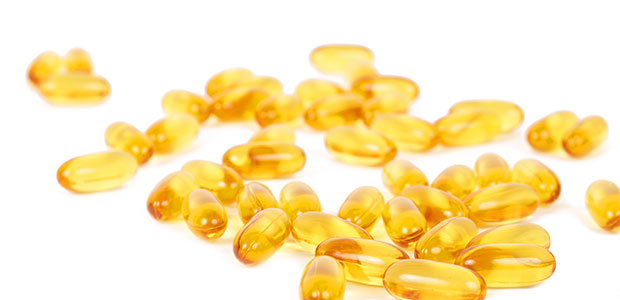Advertisement
Help for Heavy Periods
“Dr. Angela, I’ve had heavy bleeding with my menstrual cycle for almost two years now. If I don’t get it under control it’s been recommended that I get a hysterectomy,” explained Veronica, a 40-year-old mother of two. But after I got more information, it became obvious Veronica wouldn’t need a hysterectomy. There was no structural … Continued

“Dr. Angela, I’ve had heavy bleeding with my menstrual cycle for almost two years now. If I don’t get it under control it’s been recommended that I get a hysterectomy,” explained Veronica, a 40-year-old mother of two.
But after I got more information, it became obvious Veronica wouldn’t need a hysterectomy. There was no structural reason such as large fibroids or cancer causing the bleeding, and no inherent clotting problem with her blood. Therefore, it mainly came down to balancing her hormones.
This is something I have seen naturopathic protocols work wonders with in my years of practice. Within two more cycles, Veronica’s heavy periods had improved dramatically, and after six months of natural treatment the problem was resolved.
Heavy or prolonged bleeding during menses is known as menorrhagia. A normal menses usually lasts four to seven days, with blood loss of around 35 millilitres per cycle. If there is heavy bleeding, a woman loses more than 80 ml of blood per cycle, requiring her to change a pad or tampon every one to two hours due to the continuous heavy flow.
Possible Causes
Several different systemic conditions can cause heavy periods. One is a genetic condition where the blood does not clot properly, known as von Willebrand’s disease, which accounts for heavy bleeding with 20 percent of teenage girls who have severe menorrhagia. Some women may have a decreased number of platelets, the cells responsible for blood clotting. Low thyroid function and liver disease can also be underlying causes. Common structural causes include uterine fibroids, cervical polyps and, less commonly, endometriosis (excess tissue growth in and around the uterus). Another less common cause is uterine or cervical infection.
It’s important to work with your doctor to find the underlying cause of your heavy bleeding. As with my patient Veronica, it’s often simply a case of hormone imbalance. What I typically find is that a woman’s progesterone level is low the last two weeks of the cycle, which leads to heavy bleeding. In many cases, a woman is not ovulating regularly or her mid-cycle progesterone surge is not adequate.
The biggest problem with heavy periods is that they predispose a woman to anemia. Low levels of red blood cells and iron contribute to fatigue, poor memory, dizziness, paleness and other problems as inadequate amounts of oxygen are transported to the cells. In addition, anemia can become a vicious cycle because it makes a woman more likely to bleed more heavily. It is obviously a social hindrance to be concerned about heavy bleeding as it restricts the amount of physical activity, not to mention the social and mental strain it places on a woman.
Diet
Eat organic foods whenever possible. Pesticides, hormones and other chemicals in conventional foods contribute to hormone imbalance. Iron-rich foods help prevent anemia. Examples include organic meats, leafy green vegetables, organic blackstrap molasses (non-organic is heavy in pesticides), eggs and wheat germ. Also, essential fatty acids help with hormone imbalance. Cold-water fish such as salmon, as well as nuts and seeds are good sources. Flax seeds are particularly important not only for their omega-3 fatty acids but also for balancing estrogen levels. Studies show flax seeds help regulate the menses when used for three cycles at 10 grams per day. Also, soy foods can be helpful in creating better hormone balance due to their hormone-normalizing properties.
Supplements
Vitamin A has been shown to be effective for many women. In one study, 40 women were given 60,000 IU for 35 days. For 23 women, menstruation returned to normal and another 14 experienced a significant decrease in heavy flow. Avoid this high dosage of vitamin A if you have liver disease. Check with your doctor before using.
B complex at 100 milligrams daily is also recommended, as B vitamins are required for helping the liver improve estrogen detoxification.
Vitamin C at 2,000 to 3,000 mg daily strengthens the capillaries and may help prevent heavy bleeding. It is best taken with an equal amount of bioflavonoids.
Herbs
My favourite herb for the long-term treatment of menorrhagia is vitex, also known as chasteberry. It helps normalize ovulation and progesterone levels by its effect on the pituitary gland. I recommend 160 mg daily of a standardized extract. Most women must take it daily for four months or longer to achieve a hormone-balancing effect.
To help reduce acutely heavy menstrual bleeding, use ginger root and yarrow. These herbs have been used traditionally for this condition. Take two capsules or 30 drops of tincture four times a day of each until bleeding is reduced.
Supplement with herbs such as dandelion root and milk thistle to improve liver function. Your liver is a critical organ involved with hormone balance as it metabolizes all the hormones in the body. Take one capsule or 20 drops of tincture with each meal for two months for liver toning.
Many other natural approaches are helpful. Homeopathic remedies such as Lachesis, Pulsatilla and Sepia are effective for underlying hormone imbalance. Work with a homeopathic or naturopathic doctor for proper use. Also, acupuncture and Chinese herbal therapy can help resolve this condition. Do remember that stress reduction techniques such as exercise, meditation and prayer are important. The ill effects of stress can cause menstrual irregularities.
In summary, nutritional and natural therapies work to address the underlying hormonal imbalance typically found with heavy uterine bleeding.




